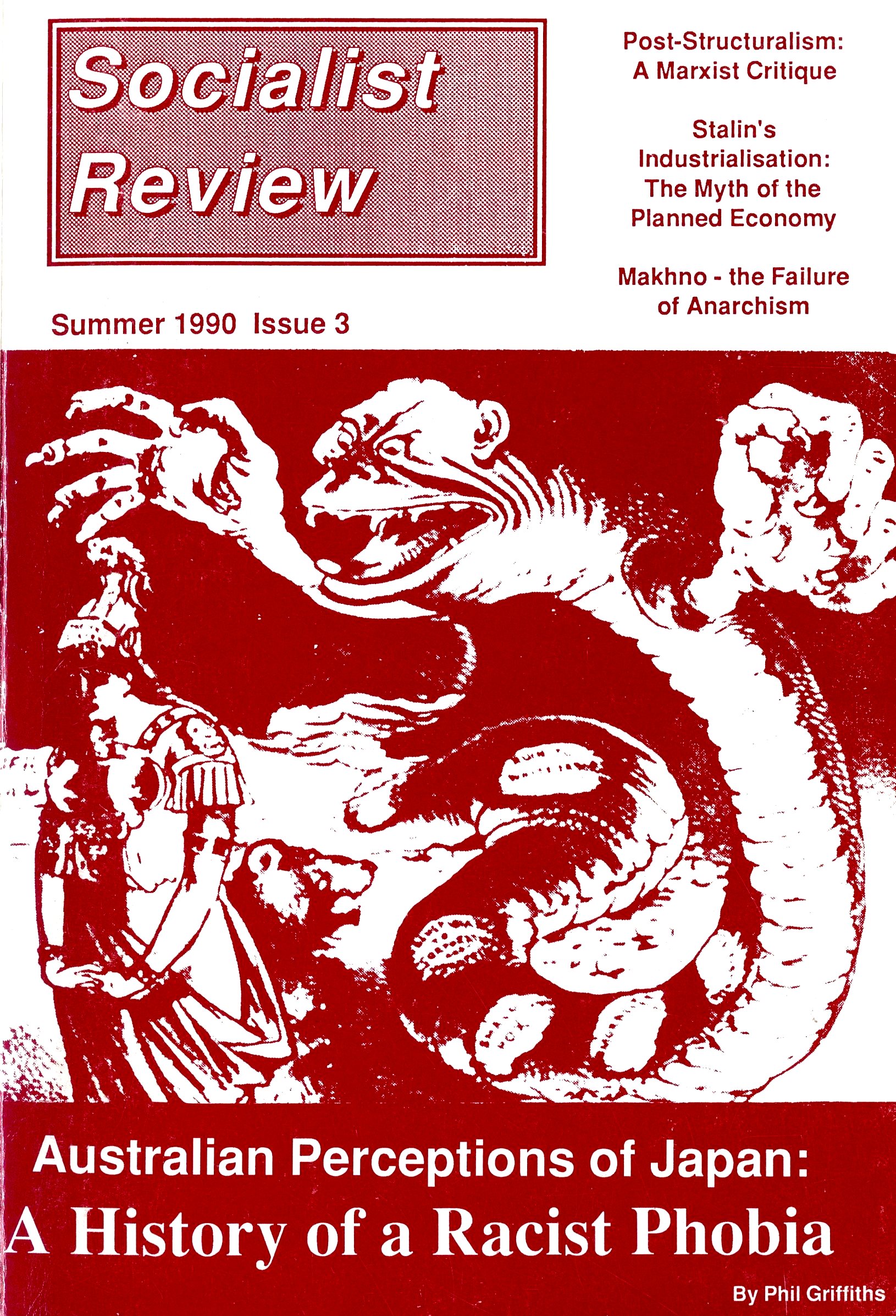Editorial (SR Vol 3)
Playback speed:
The last year has seen an increase in anti-Japanese sentiment in Australia mobilised around the Multi-Function Polis, Japanese ownership of real estate, especially on the Gold Coast, and Japanese investment more generally. Unfortunately the left has not been well equipped to deal with the racism inevitably associated with these campaigns; and at times, as in Ted Wheelwright and Abe David’s book, The Third Wave, has even contributed to it. As well Rainbow Alliance produced a pamphlet against the Multi-Function Polis bearing a racist caricature of the Japanese on the cover. In our paper, The Socialist, the International Socialist Organisation has argued that Japan is not “taking over”, that Japan is, in the final analysis, simply another national block of capital competing for markets and influence in a brutal, cut-throat imperialist system.
In Australia, one of the most destructive ideas which has permeated the labour movement is racism, especially towards the Japanese and other Asian people. Phil Griffith’s article is an outline of the history of how that racism developed, and why it was able to take root so deeply in Australian society. He shows that the left has been steeped in it and still is. If we are to build a Marxist organisation capable of combating racism in Australia, this history is an essential part of our armoury. The article is topical in another sense as well. The Australian bourgeoisie enthusiastically sacrificed workers’ lives in both World Wars and in Vietnam; they are again preparing for bloodshed as we go to press – this time in the Gulf. The way the ruling class successfully utilised racism to whip up popular war fever in those previous wars is a warning for today.
The historic mass popular revolutions in Eastern Europe have heralded at long last the death of Stalinism, which for so long hung like an albatross around the neck of the left. They brilliantly confirmed the long-standing analysis of the International Socialist tendency that those countries were state capitalist. However, because the Stalinist states have been thought by most people to be socialist, their collapse has been used to discredit any idea of abolishing the tyranny of the capitalist market. Indeed many people on the left have embraced the market and consider that the building of a planned, democratic society is impossible. Anne Picot’s article highlights the fact that the Stalinist bureaucratic command economy, which rose from the ashes of the victorious workers’ revolution of 1917, was never an example of democratic socialist planning.
In the last Socialist Review we said we would debate other ideas on the left as part of our aim to re-establish the real Marxist tradition. Tony Sullivan’s outline of some of the basic philosophical ideas of classical Marxism we hope will contribute to that and begin the task of a thorough critique of post-structuralism, which has become so popular on the campuses. Mick Armstrong’s article on Makhno is a look at the failure of anarchism when put into practice.
We are interested in debates within Marxism, or with other points of view, with a wider number of people than just our own membership. The deadline for articles for issue No. 4 is the last week of January, 1991. Thanks to Robert Bollard and Mick Armstrong for assistance with editing and technical work for this issue.
Sandra Bloodworth

